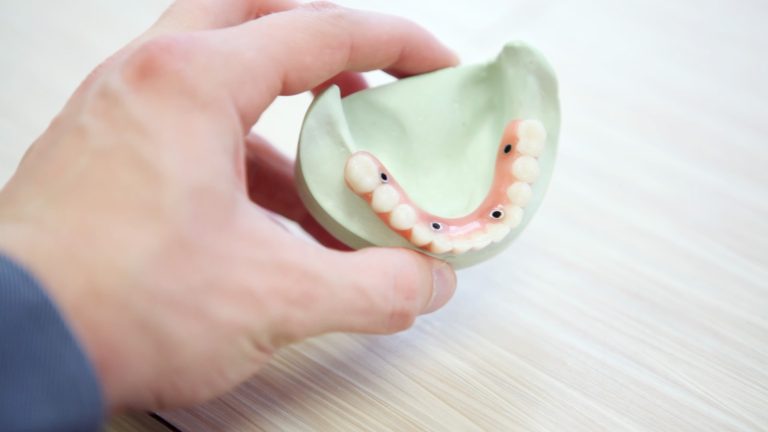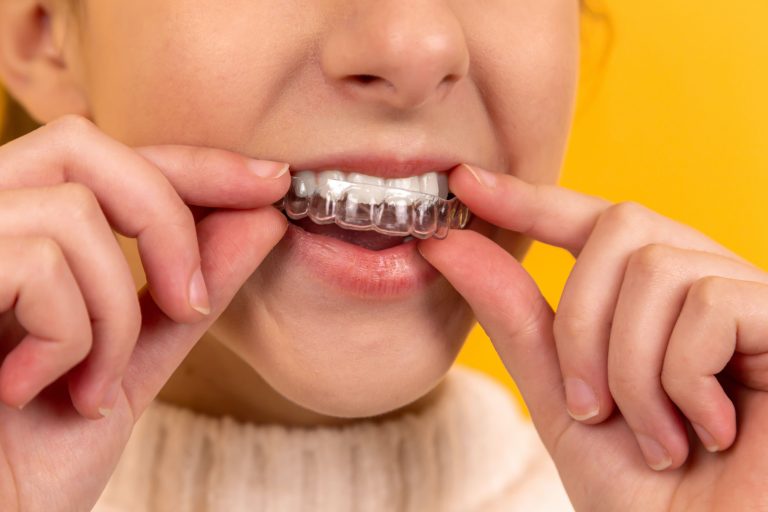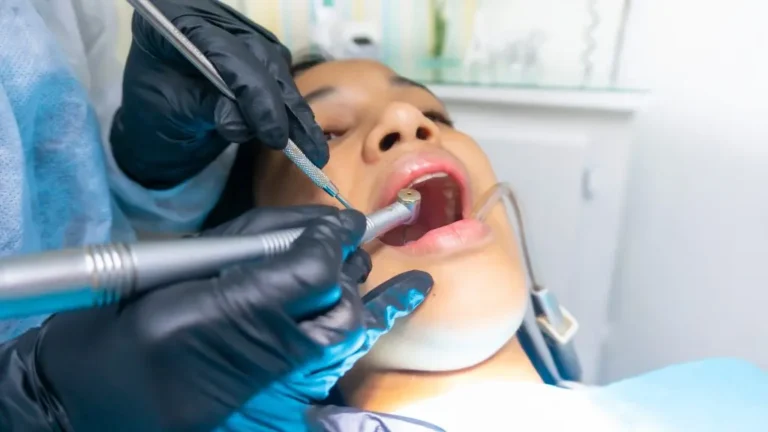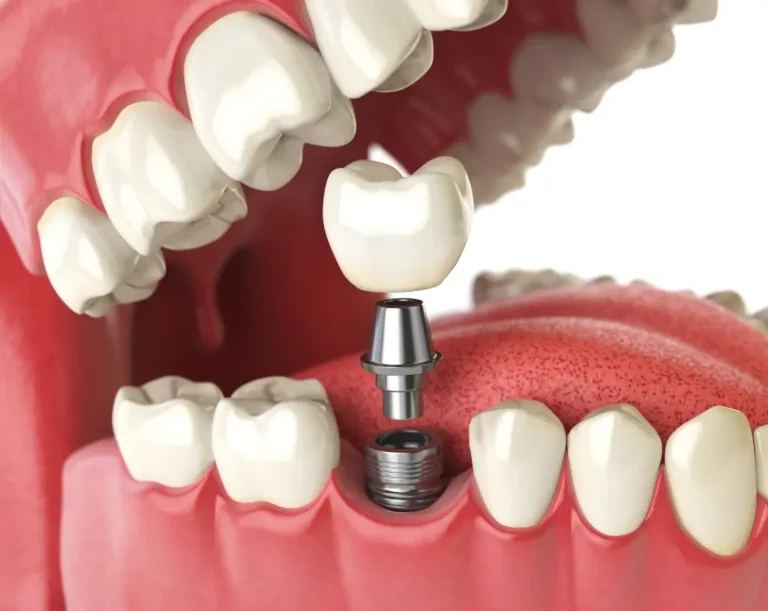Tooth decay is a serious problem that can lead to pain, infection, and even tooth loss. If you have tooth decay, it’s important to get treatment as soon as possible to avoid further damage.
There are several different types of tooth decay treatment available, depending on the severity of the decay. For milder cases, a simple cleaning may be all that’s needed. More severe cases may require a filling, crown, or even a root canal.
What is Tooth Decay?
Tooth decay, also sometimes referred to as dental caries or cavities, is a bacterial infection that causes demineralization and destruction of the hard tissues of the teeth. Tooth decay is one of the most common chronic diseases in children and adults, and can lead to pain, tooth loss, and other serious health problems. Early detection and treatment of tooth decay is essential to prevent its progression and maintain oral health.

The bacteria that cause tooth decay are found in plaque, a sticky film that constantly forms on our teeth. When we eat or drink sugary or starchy foods, the bacteria in plaque use these sugars to produce acids that attack the tooth enamel. This process, called demineralization, leads to the formation of cavities.
Tooth decay can be prevented by following some Dental Care Tips to Improve Oral Hygiene Routine.
Diseases That Cause Tooth Decay
There are many different diseases that cause tooth decay. Some of the more common ones include:
1. Cavities
Cavities are one of the most common causes of tooth decay. They are caused by bacteria in the mouth that breaks down the enamel on the teeth.
2. Gingivitis
Gingivitis is an inflammation of the gums that can lead to tooth decay. It is caused by plaque build-up on the teeth.
3. Periodontitis
Periodontitis is a more severe form of gingivitis that can destroy the tissues and bones that support the teeth.
4. Dental Fluorosis
Dental fluorosis is a condition that is caused by exposure to too much fluoride. It can cause the enamel on the teeth to become weak and lead to tooth decay.
5. Dental Caries
Dental caries are another common cause of tooth decay. They are caused by bacteria in the mouth that break down the enamel on the teeth.
6. Porphyria
Porphyria is a rare disease that can cause tooth decay. It is caused by a build-up of porphyrins in the body.
7. Reactive Oxygen Species
Reactive oxygen species are chemicals that can damage the teeth and lead to tooth decay. They are produced by the body in response to infection or injury.
8. Genetic Factors
There are some genetic disorders that can cause tooth decay. One example is xerostomia, which is a condition that causes the mouth to produce less saliva. This can lead to a build-up of plaque on the teeth and an increased risk for cavities.
These are some of the diseases that can cause tooth decay. If you think you may have one of these conditions, it is important to see your dentist so they can diagnose and treat the problem. Apart from tooth decay, there are few other severe dental problems also that you should be aware of. Follow this article to know the Most Common Dental Problems and Tooth Diseases.
How to Prevent Tooth Decay
Tooth decay is the deterioration of tooth enamel caused by acidic or sugary foods. The acids in these foods interact with the minerals in tooth enamel, causing them to break down. Here are 10 ways how you can prevent tooth decay:
1. Eat a healthy diet
Eating a healthy diet is one of the best ways to prevent tooth decay. Focus on eating plenty of fruits, vegetables, and whole grains. Avoid sugary foods and drinks as much as possible.
2. Brush your teeth twice a day
Brushing your teeth twice a day is an essential part of preventing tooth decay. Be sure to use a fluoride toothpaste and brush for two minutes each time.
3. Floss daily
Flossing helps remove plaque and bacteria from between your teeth that can cause decay. Be sure to floss at least once a day.
4. Limit sugary snacks and drinks
Sugar is one of the main causes of tooth decay. Limiting your intake of sugary snacks and drinks can help prevent decay.
5. Use dental sealants
Dental sealants are a protective coating that is applied to the teeth. They can help prevent tooth decay by sealing off the teeth from bacteria and plaque.
6. Avoid tobacco use
Tobacco use is one of the leading causes of tooth decay. Quitting tobacco can help prevent decay and keep your mouth healthy.
7. Drink plenty of water
Drinking water helps wash away plaque and bacteria that can cause tooth decay. Be sure to drink plenty of water throughout the day.
8. Visit your dentist regularly
Seeing your dentist regularly is an important part of preventing tooth decay. Be sure to schedule regular check-ups and cleanings.
9. Use fluoride
Fluoride is a natural mineral that plays a crucial role in preventing tooth decay. This essential mineral is present in various dental care products such as toothpaste and mouthwash. Be sure to use products that contain fluoride.
10. Practice good oral hygiene
Practicing good oral hygiene is one of the best ways to prevent tooth decay. Be sure to brush and floss regularly, and visit your dentist regularly.
In order to prevent diseases from occurring, you can follow a healthy diet to help your oral health. Know the Best Foods That Are Good For Your Teeth and Gum.
Tooth Decay Treatment At Home
Most people prefer to see a dentist in order to treat tooth decay, which is the right thing to do. However, there are some things that you can follow as a regular habit at home to help prevent or treat tooth decay. Here are 6 such ways you can have long term tooth decay treatment at home:
1. Use fluoride toothpaste
Fluoride is known to help prevent tooth decay. Therefore, using a fluoride toothpaste can help treat and prevent tooth decay.
2. Avoid sugary drinks
Sugar is one of the main culprits of tooth decay. Therefore, avoiding sugary drinks can help prevent and treat tooth decay.
3. Eat more crunchy fruits and vegetables
Crunchy fruits and vegetables help clean your teeth and remove plaque build-up. This can help prevent and treat tooth decay.
4. Use mouthwash
Mouthwash can help remove plaque and bacteria from your mouth. This can help prevent and treat tooth decay.
5. See your dentist regularly
Even if you are taking good care of your teeth at home, it is important to see your dentist regularly for professional cleanings and check-ups. This will help ensure that your teeth are healthy and free of decay.
6. Cleaning between your teeth
Cleaning between teeth is an important part of oral hygiene, as it helps remove plaque and bacteria that can lead to tooth decay and gum disease. Know the best Tips for Cleaning Between Teeth To Get a Truly Healthy Smile.
What to Do For Tooth Decay Pain Relief
Tooth decay results in tooth pain. There are a few things that you can do to help relieve pain from tooth decay. First, rinse your mouth with warm water. This will help to loosen any food particles that may be stuck in the affected area. Next, use a soft toothbrush to gently brush the affected area. Be sure to use circular motions and avoid scrubbing too hard. Finally, floss the affected area to remove any remaining food particles. If the pain is severe, you may want to take over-the-counter pain medication or see your dentist for further treatment.
Tooth Decay Treatment Cost
Tooth decay is one of the most common dental problems that require treatment. The cost of treatment will depend on the severity of the decay and the type of treatment required.
For mild tooth decay, a simple filling may be all that is needed. The average cost of a filling is typically between $50 and $300. For more severe tooth decay, a root canal procedure may be necessary. This procedure can cost between $700 and $1,500.
If tooth decay is left untreated, it can lead to serious dental problems such as gum disease and tooth loss. Therefore, it is important to see a dentist as soon as possible if you think you may have tooth decay. Early treatment can help to prevent more serious and costly problems from developing.
If you have dental insurance, it may cover some or all of the cost of treatment for tooth decay. However, many dental insurance plans have limits on the amount they will pay for dental procedures. Therefore, it is important to check with your insurance provider to see what coverage is available before having any treatment done.
If you do not have dental insurance, there are still options available for paying for treatment. Many dentists offer financing plans that can make treatment more affordable. In addition, there are a number of government and non-profit programs that provide financial assistance for dental care.
No matter how you pay for it, tooth decay treatment is an important investment in your oral health. If you’re from Lower Manhattan and looking for a dentist to treat your tooth decay. Visit City Dental Group Today. At City Dental, you can find the best Dentists in Manhattan New York. Get Book your consultation today to get guidance from expert professionals.





